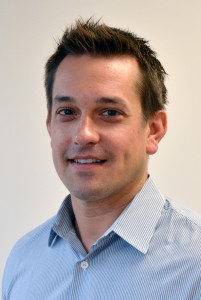Dennis Wolan, Scripps Research Institute – Microbiotic Biology
There’s a lot of stuff happening in the human gut!
Dennis Wolan, an assistant professor in The Scripps Research Institute’s department of molecular and experimental medicine, is working with the microbiotic enzymes to better understand our bodies and hopefully treat disease.
Dr. Dennis Wolan received his Ph.D. from The Scripps Research Institute in X-ray crystallography and performed his postdoctoral research at the University of California, San Francisco in small molecule discovery and design. Since his return to The Scripps Research Institute, Dr. Wolan’s research has focused on understanding the roles that commensal microbiome bacterial proteins play in human health and disease, and to apply this knowledge towards the development of innovative antimicrobial chemical and biological therapies.
Microbiotic Biology
![]()
We are covered from head to toe with a diverse network of organisms, including bacteria, fungi, and their viruses. This group of organisms is termed the “microbiome” and the best-characterized community of our resident microbes is located within the large intestine.
The gut microbiome is essential for human health because it provides nutrients from the food that we eat as well as making essential vitamins that we absorb. Luckily, though, it does’t digest ourselves. s
Our ability to understand the importance of the microbiome is just beginning and is essential for biomedical research, as it has been established that alterations in bacterial populations within a microbiome can result in the onset of diseases, such as obesity, malnutrition, inflammatory bowel diseases, and cancer.
My laboratory focuses on the enzymes that the microbiome communities manufacture. We want to first determine if microbiomes of different people produce similar or different varieties of enzymes as the types of bacteria that make up an individual’s gut microbiome is unique, like a fingerprint.
We also want to understand the biological role bacterial enzymes have within our intestinal tract as well as what happens to these enzymes in diseased states.
To accomplish these tasks, we develop molecules that act as magnets to isolate particular classes of bacterial enzymes from human microbiome samples. We make different classes of molecules that are capable of recognition by specific types of enzymes that are then applied to survey microbiomes.
We use this small molecule isolation technique in combination with several scientific instruments and computational programs that allow us to identify which bacteria produce the enzymes our molecules magnetize to. Importantly, these tools allow us to also measure the amount of particular enzymes between microbiomes of different people or diseases.
Ultimately, our goal is to develop a set of valuable chemical tools to help understand microbiome biology as well as employ our methods to identify potential therapeutic targets to combat or protect against microbiome-related diseases.



